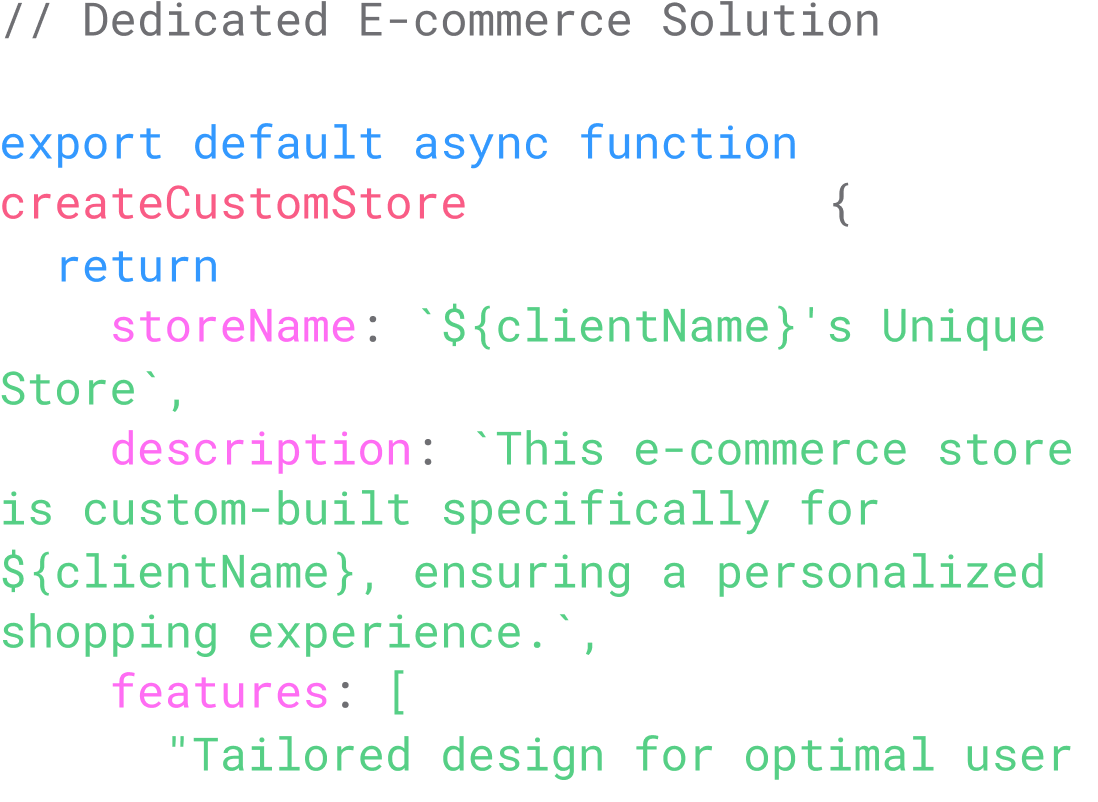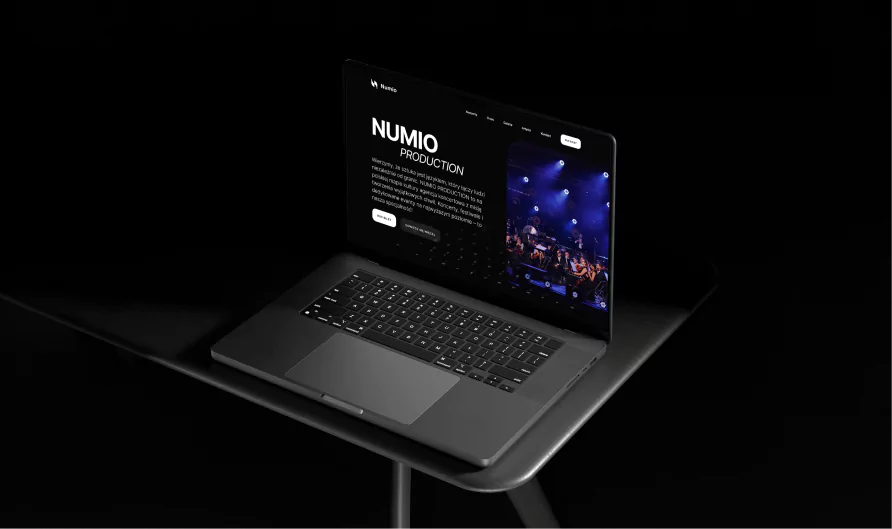What we do
How we work
Process
Our approach is built for clarity, speed, and impact. From first insight to final delivery — we align vision, craft bold design, and build with precision.
STRATEGY
1
Kickoff2
Discovery3
Roadmap4
Market Insights
DESIGN
5
User Flows6
Wireframes7
UI System8
Prototype
DEVELOPMENT
9
Implementation10
Integration11
QA & Testing
DELIVERY
12
Launch13
Optimization
Why Us?
We deliver solutions that redefine possibilities and position your brand a step ahead of the market.
Everything You Need - We Provide a Full Suite of Solutions
We provide a full set of solutions
UI/UX that Engages and Sells
Our solutions effectively capture attention, encourage staying, and successfully increase conversion.
Dedicated Solutions
To meet all your requirements

Modern Tech Stack Tailored to You
All the technologies you need to make your project run quickly and securely
See what we've already done
Case Studies
Numbers that speak for themselves
Results of our work
100%
Client Satisfaction
Perfect client satisfaction due to our custom solutions and relentless pursuit of excellence.
30+
Technology Mastered
As market pioneers, we've mastered 30+ cutting-edge technologies to lead and redefine quality.
0,6s
Average site load time
Pages created by us load in an average of 0.6 seconds - an outstanding result in existence.
100%
Client Satisfaction
Perfect client satisfaction due to our custom solutions and relentless pursuit of excellence.
30+
Technology Mastered
As market pioneers, we've mastered 30+ cutting-edge technologies to lead and redefine quality.
0,6s
Average site load time
Pages created by us load in an average of 0.6 seconds - an outstanding result in existence.
50+
Designed interfaces
50+ meticulously designed interfaces—where precision meets flawless aesthetics.
∞
Scalability
Our solutions grow with your business, ensuring seamless performance at any scale.
1M+
Lines of code written
Precision-engineered, optimized, and built for peak performance.
What others think about us
Our Opinions
“Filip, Marcel, you are the salt of the earth, and without a doubt, you will go far in life. I am deeply impressed by your enthusiasm, determination, and desire to succeed. I’ll be rooting for you.”
Konrad Sitnik
Co-Founder And Partner At EEC Ventures
“These young people are full of creativity. The websites and applications they are creating are very promising.”
Adrian Majewski
Head Of Programming Department At VectorSoftware
“This collaboration is a beautiful time, but also a fruitful glimpse into the future for young designers, creators and champions of IT.”
Tomasz Olszewski
Founder And Proprietor Of DataCad




